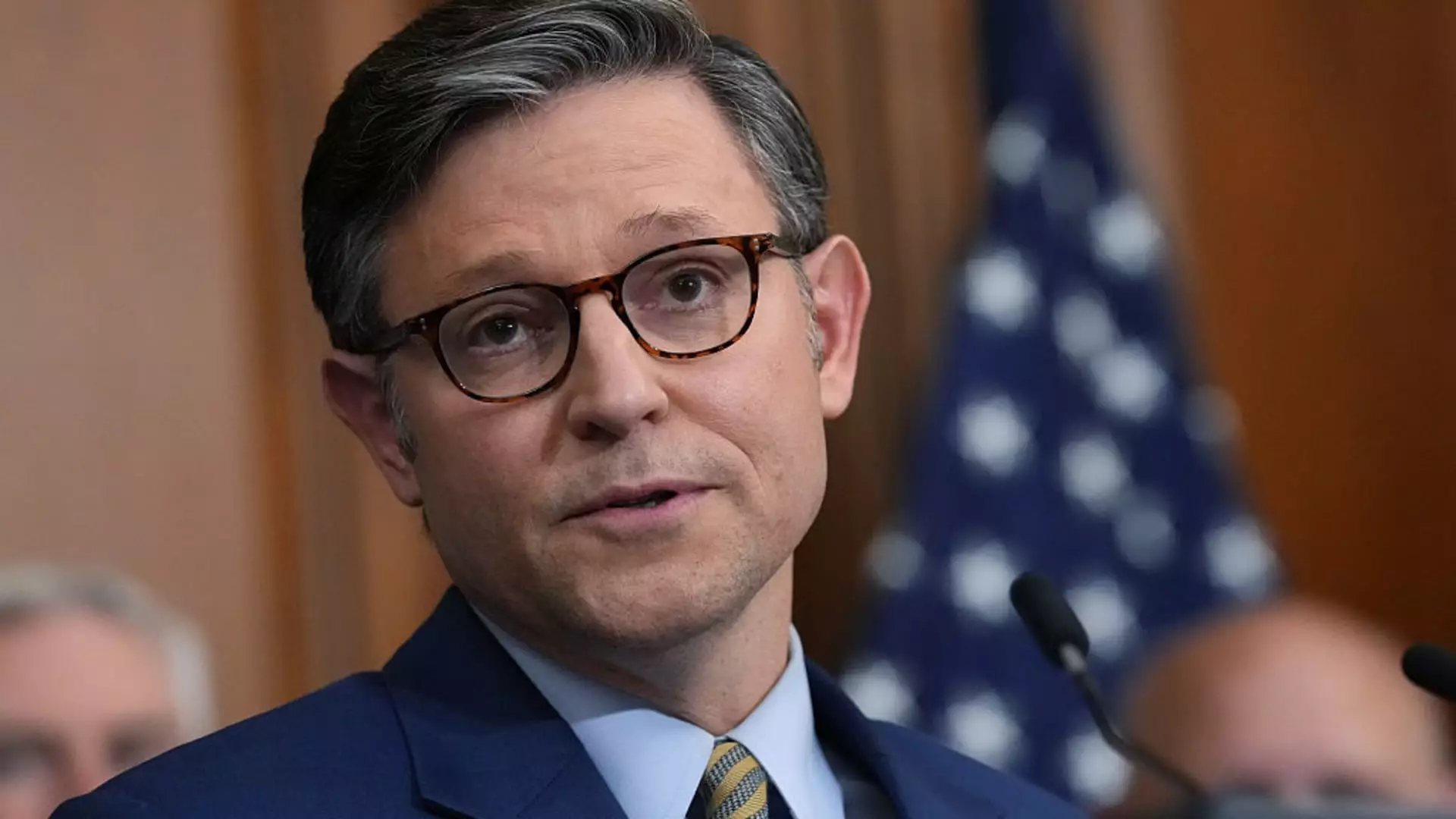In the current political landscape, a misalignment of priorities seems to govern the discussion surrounding Medicaid, particularly by key Republican figures. Speaker Mike Johnson’s assertion that only those who “choose to” lose Medicaid will be impacted by recent budget cuts is alarming in its simplicity and dismissive tone. The idea that imposing “common sense” work requirements on able-bodied recipients is a step towards accountability is a facade that conceals the harsh reality for millions of vulnerable Americans. The crux of the issue lies in the expectation that individuals navigating financial distress can effortlessly integrate into a labor market riddled with barriers like underemployment and job scarcity.
Work requirements often come couched in noble rhetoric claiming to incentivize productivity and pull people out of poverty. However, the requirements as proposed in this budget bill demand 80 hours a month of work, training, or volunteer service for a demographic that already faces significant challenges. Johnson’s dismissal of concerns about the perceived burdensome nature of these mandates reveals a lack of empathy and understanding of the soci-economic ramifications. Regrettably, this approach overlooks the nuance required in addressing poverty, especially among those with complexities that may prevent their active participation in the workforce.
Unpacking the Administrative Burden
While Johnson claims that the added paperwork and eligibility checks are a “minor enforcement,” this perspective ignores the significant toll of bureaucratic red tape on individuals already struggling to navigate a convoluted system. As many critics have asserted, these additional requirements are not just minor inconveniences; they can effectively disenfranchise the very people the program is meant to support. The argument that a community service requirement can foster betterments in an individual’s life is easily undermined by the practical compliance challenges posed by excessive bureaucracy.
The assertion that these measures foster discipline and community engagement comes across as condescending when one considers that individuals seeking Medicaid assistance are often dealing with multiple barriers to success. These can include ill health, lack of transportation, caregiving responsibilities, or simply the crushing weight of chronic economic anxiety. What Johnson and his supporters miss is the fragility of the scenario they propose. Instead of making Medicaid recipients’ lives more manageable, these new regulations induce an atmosphere of fear and uncertainty, practically ensuring that many will fall through the cracks.
Political Fallout and the Voices Ignored
The Republican Party’s strategic narrative around Medicaid cuts is meeting increasing resistance from within its own ranks, as indicated by Sen. Josh Hawley’s dissenting voice. His characterization of the drive to cut health insurance for working-class citizens as “morally wrong and politically suicidal” underscores a growing awareness that the party risks alienating voters who are struggling. The party’s relentless push for austerity under the guise of fiscal responsibility is not just the voice of a single leader; it represents an ideological battle over the soul of the Republican platform.
The messaging from Democrats opposing the cuts, such as Sen. Raphael Warnock, reflects a palpable urgency echoing those concerns. Warnock reveals a painful truth: these policies predominantly target those least equipped to withstand additional hardships. When the crux of a political agenda pertains to the well-being of the poorest sectors of society, it’s essential to prioritize their needs over ideological tenets favoring reduced government spending.
The Broader Implications of a Heartless Reform
The larger picture of American welfare reform tells a stark story of neglect and hostility toward the economically disadvantaged. Proponents of these cuts—whether naively or deliberately—seem to overlook that Medicaid doesn’t just provide health insurance but also serves as a lifeline, safeguarding millions against financial ruin due to health crises. To strip away this safety net, especially under the guise of “common sense,” is not merely a policy decision; it is a moral choice with far-reaching consequences that affect entire communities.
In a nation battling for social equity, sidelining the welfare of the most vulnerable citizens for budgetary gains portrays a grievous miscalculation—a misguided venture that constructs an illusion of progress while perpetuating a cycle of poverty. The need of the hour is not to impose stringent requirements, but to expand access and provide resources that help individuals build better futures. Only then will we authentically approach the vision of a more equitable society where everyone has a fair shot at success.


Leave a Reply